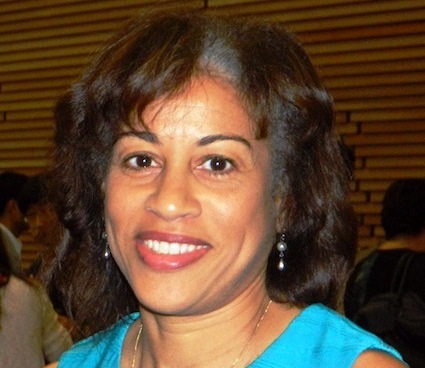
AUCKLAND (AUT/Unitec/Pacific Media Watch): Ethnic media in New Zealand need to do more to engage with Māori and other communities and be less exclusive, says a social sciences academic who formerly chaired the Auckland Ethnic People's Advisory Panel.
Associate Professor Camille Nakhid, a senior academic at AUT University and who is also on the advisory board of the Pacific Media Centre, says ethnic media ought to work on expanding its relationships.
“What are we knowing about each other as ethnic communities?” she told a recent Ethnic Migrant Media Forum hosted by Unitec.
“We know what the mainstream or dominant media says about us, but who are we?”
Dr Nakhid believes there is a tendency of ethnic media to “reinforce the status quo” with the relationship being between mainstream and the particular ethnic group.
Views, perspectives and stories of the mainstream are shared with ethnic communities through the ethnic media in a form of social control over ethnic communities, she said.
“Ethnic media, however, should have a relational role between itself and the indigenous Māori people, and between different ethnic groups,” said Dr Nakhid, who has lived in New Zealand for more than two decades and is from Trinidad and Tobago.
“As it is, ethnic media is exclusionary, primarily because of the language used in its media.”
Changing demographic
Organiser Associate Professor Evangelia Papoutsaki from Unitec told the forum, attended by about 80 academics, media and civil society people, that Auckland’s demographic was changing rapidly.
New Zealand’s pro-immigration policies had attracted a number of ethnic groups from across the world contributing to a diverse society with Auckland boasting more cultural diversity than London.
“Auckland alone has a vibrant ethnic media scene with a high number of ethnic media outlets. Evidence shows that mainstream media in NZ does not fully address the communication needs of these ethnic groups, nor does it represent them in a balanced way,” she said.
Pasifika Broadcasting director Setita Miller said her TV production company started 14 years ago and today it produced three weekly half hour programmes on CUE TV, Sky and FACE TV, predominantly focussing on the Tongan community.
Pacific Radio news editor Mary Lose said that in the next 15 years, one in four people would identify themselves as Polynesian.
Mainstream ‘adjusting’
“Ethnic media matters because the insight, information and communication representation on issues around what matters to communities is always changing,” she said.
“Mainstream media needs to do the adjusting.”
Pacific Island Media Association chair Sandra Kailahi said the forum was an opportunity for Pacific people to see what was happening with other migrant media but to also voice their concerns about what was happening in the Pacific media world.
Tagata Pasifika executive producer Taualeo’o Stephen Stehlin said it was an interesting time with TVNZ outsourcing its Māori and Pacific programmes and although the broadcaster had promised to keep the programme going, he was concerned about who will make it.
This work is licensed under a Creative Commons Attribution-NonCommercial 3.0 New Zealand Licence.




